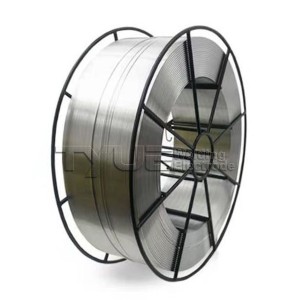When welding cast iron and ductile iron, using the correct wire is critical to achieving a strong and durable weld. This is where nickel alloy welding wire comes into play. This nickel-iron solid wire is designed for welding applications involving cast iron and ductile iron. Its unique composition and properties make it ideal for achieving high-quality welds in these materials.
Nickel alloy wire is known for its excellent weldability and high strength, making it suitable for a wide range of welding applications. Its composition of nickel and other alloying elements provides excellent resistance to cracking and ensures the integrity of the weld. This makes it a reliable choice for welding critical components and structures made of cast iron and ductile iron.
One of the main advantages of using nickel alloy wire is the ability to produce welds with excellent ductility and toughness. This is critical in applications where welded components are subject to high stress and shock loads. The welds produced using this wire have excellent mechanical properties, ensuring the longevity and reliability of the welded joints.
In addition to excellent mechanical properties, nickel alloy welding wire also has excellent corrosion resistance, making it suitable for welding applications in harsh and corrosive environments. This ensures that the welded component maintains its integrity and performance even under challenging conditions, further increasing the durability and longevity of the weld.
Overall, nickel alloy welding wire is the first choice for welding cast iron and ductile iron due to its superior weldability, high strength, excellent ductility, toughness and corrosion resistance. Whether for industrial, automotive or structural applications, the wire’s exceptional performance and reliability make it an indispensable tool for achieving high-quality welds in cast iron and ductile iron components.
Post time: Mar-11-2024

